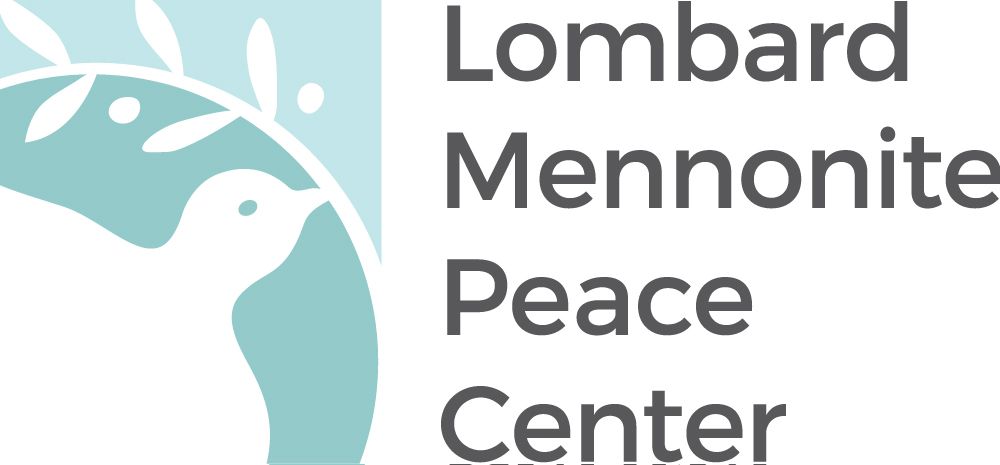History
Transforming Communities with Biblical Peacemaking
The Lombard Mennonite Peace Center (LMPC) ministry receives its impetus from Scripture: “All this is from God, who through Christ reconciled us to himself and gave us the ministry of reconciliation” (II Corinthians 5:18). Thus, LMPC seeks to ground its peacemaking in a biblical understanding of salvation and Christian discipleship.
The Lombard Mennonite Peace Center was founded in 1983 as a peace resource center overseen by a suburban Mennonite congregation. Serving primarily the Chicago Metropolitan area, LMPC provided both local churches and the broader public with speakers, audio-visual resources, and literature devoted to biblical peacemaking, including global issues such as the nuclear arms race. In the early years we also worked with educators in school settings to establish peer mediation programs.
As demand increased and its reputation spread, LMPC programs were made available nationwide. Multiple denominations encouraged their clergy members and lay leaders to attend our Mediation Skills Training Institute for Church Leaders. Seminary training often neglects issues regarding conflict transformation, so participants were eager to acquire the skills and knowledge that helped them deal more effectively with conflict.
During the 1990s our Director Emeritus, Richard Blackburn, provided training in conflict transformation in venues outside of the United States, including Yugoslavia, the United Kingdom, the Netherlands, and Switzerland. From 2006 to 2013 he taught summer courses in Florence, Italy on behalf of Southern Methodist University. More recently Reverend Blackburn has led a Peacemaker’s Pilgrimage to the Holy Land every other January.
In 1998 LMPC was reorganized as an independent not-for-profit ministry.
Throughout the years we have remained committed to a range of peace and justice concerns viewed from a biblical perspective. Our five-day Mediation Skills Training Institute for Church Leaders has been presented over 200 times involving more than 7,000 participants. We have become a nationally recognized ministry for training church leaders in understandings grounded in family systems thinking via our nine-day Clergy Clinic and Advanced Clergy Clinic. We also offer a variety of shorter workshops grounded in systems theory that are designed to help both clergy and lay leaders function in a more differentiated manner in the midst of congregational anxieties. Equally important as our workshops are the mediation services we offer to individuals, churches, and other organizations. Ultimately our mission is to help Christ’s church grow increasingly in health and wholeness, into all that God wants the church to be.
FAQs
Glossary
Acute Anxiety
Reaction to specific events or issues; fear of what is.
Anxiety
The response of an organism to a threat, real or imagined.
Chronic Anxiety
Reaction to a disturbance in the balance of a relationship system; fear of what might be.
Conflict transformation
Theories and practices of responding to conflict that foster transformation and constructive outcomes. Conflict transformation views conflict as an opportunity for growth and change, rather than just a problem to be resolved.
Cut-off
The effort to manage the intense fusion through physical or emotion withdrawal from a relationship.
Differentiation
The capacity to be a discrete self while staying in contact with others.
Family systems theory
A theory of human behavior that “views the family as an emotional unit and uses systems thinking to describe the complex interactions in the unit.” This theory, developed by Dr. Murray Bowen, is used to explain how churches function as emotional systems, and to help church leaders respond to anxiety and conflict within systems.
Fusion
The degree to which one’s functioning is dependent upon the support and acceptance (or other response) of others.
Pseudo-Self
Beliefs and principles instantly adopted or modified to enhance one’s connection or image with others or to oppose others.
Reactivity
Automatic, instinctive responsiveness to others driven by emotional process.
Self-Differentiation
People’s capacity to calmly articulate what they think and value, and to act on that basis, while staying in active relationship with those who disagree.
Solid Self
Firmly held beliefs and principles formed slowly and changed only from within self.
Triangle
The smallest stable relationship unit; serves to shift anxiety from relationship to relationship.


